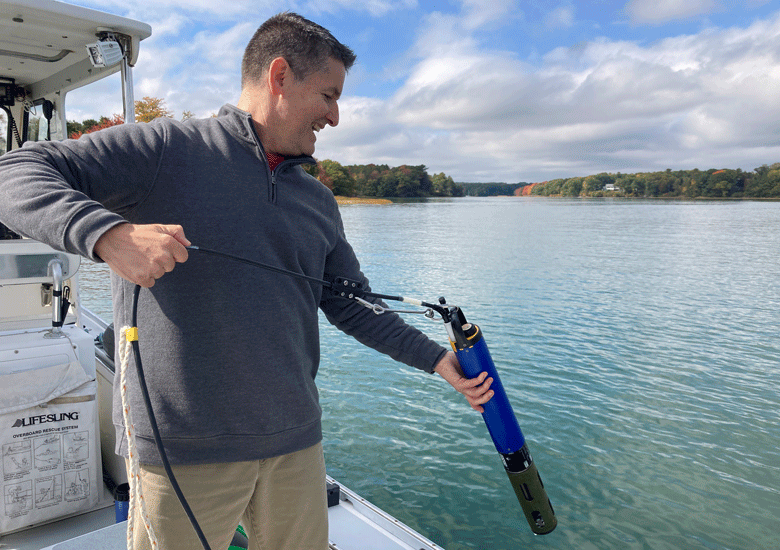Casco Bay is warming rapidly, according to a 30-year data set collected by Friends of Casco Bay. Temperatures in the bay have warmed 3 degree Fahrenheit on average since 1993. At a rate of 1 degree Fahrenheit per decade, the warming trend suggests the nearshore environment in Maine’s most populated region will continue to see dramatic changes in the coming years.
“This rise in water temperature marks an enormous shift,” reports Mike Doan, staff scientist with Friends of Casco Bay. “It’s a stark reminder that climate change is altering the bay in a fundamental way. And not only is the temperature increasing, but the rate of increase has continued to rise, too.”
Friends of Casco Bay completed its 30th year of collecting seasonal water temperature data in October. The full 30-year data set shows the bay’s three warmest years on record have all occurred in the past five years, between 2018 and 2022. These data confirm that warming conditions in Casco Bay align with those observed in the Gulf of Maine and that the region’s waters are warming faster than global averages.
The bay’s three warmest years on record have all occurred in the past five years…
Scientists have linked rising marine temperatures to shifts in species distribution. Valuable cold-water fisheries like lobster are migrating north. Green crabs, well-known for decimating softshell clam populations and ecologically critical eelgrass meadows, have grown in number in Casco Bay as waters have warmed.
“Rising water temperatures cause so many impacts,” says Ivy Frignoca, Casco Baykeeper. “A significant rise in temperature can lower the amount of oxygen in the water, cause ill health for cold water plants and animals, and signal an end to a species’ ability to live here. How do we help the bay adapt to these changes?”
Slowing the rate that Casco Bay is warming will require accelerated regional and national efforts to reduce reliance on fossil fuels and turn to renewable energy. For many people living in the watershed however, changing energy policy to reduce carbon emissions can feel beyond their influence, says Will Everitt, Friends of Casco Bay’s executive director.
“Locally, we have a limited ability to control carbon emissions across the nation or beyond our borders. But we can control the pollution we put into the Bay,” said Everitt. “Everything we do now to improve the health of marine ecosystems can help buy us time in the face of the long-term impacts of climate change. Actions like limiting the use of pesticides and fertilizers, reducing stormwater pollution, and developing our towns in ways that do not harm water quality matter. Especially in highly populated areas like the shores of Casco Bay. ”





